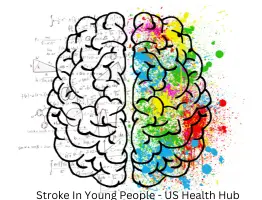Coping with Memory Loss After a Stroke

Holding onto personal experiences shapes who you are. It guides connections with others, influences choices, and affects how life moves forward. When something disrupts this process, impact can feel overwhelming. Losing access to past moments may feel like part of you disappeared, leaving thoughts tangled and familiar patterns suddenly confusing. For many people, moving through life without reliable recall brings frustration, anxiety, and a heavy sense of loss, making progress toward stability feel complicated and deeply exhausting.
Here, I’ll walk you through what this kind of loss looks like, why it happens, and how to cope and rebuild life. Whether you’re a survivor, a caregiver, or just someone wanting to understand this condition better, this guide is for you.
What Is a Stroke, and How Does It Affect Memory?
Before exploring what such an experience might bring, it’s crucial to grasp what occurs during one of these episodes. It happens when blood flow to a section of body’s command center is interrupted or significantly reduced. Without sufficient oxygen and nutrients, affected regions begin to fail within minutes. This interruption can result from a blocked vessel or one that ruptures—both scenarios capable of causing serious complications.
Brains depend on a complex network of regions; they handle specific abilities and processes. When injury hits areas tied to storing or retrieving past experiences, results can run deep. Loss can show up as brief lapses or grow into wide-ranging amnesia, based on which regions take damage and how severe that damage becomes.
Types of Memory Affected by Stroke
Holding and keeping information does not work as one single process—it operates through multiple types that work together, and each one can be disrupted by this condition. Below is an overview of common forms that may be affected.
Holding onto details for a short time—like a phone number just long enough to dial—can be tough for many folks after this kind of event. It often makes conversations harder to track and everyday tasks more frustrating.
Long-term abilities include remembering past experiences, knowledge, and routines. While these skills often remain steady, some folks may struggle to bring specific moments or details back into focus.
Working ability: This works like a personal “notepad,” holding information tied to ongoing events and activities. When this ability gets disrupted, problem-solving, decision-making, and organizing thoughts can become much harder, causing ordinary activities to feel overwhelming.
Procedural skills: Actions learned through repetition happen automatically, like riding a bike or tying shoelaces. After such an event, you may struggle with actions that once felt natural.
Looking ahead: This includes keeping track of things like taking your meds or showing up for appointments. A lot of folks find this tricky, which can make daily routines harder to manage.
What Causes Trouble Remembering Things After an Event Like This?
Such challenges arise after a significant event for multiple reasons, all tied to how a mind’s intricate structure functions and processes experiences. Shifts in perception, emotional regulation, and cognitive patterns can make responses feel intensified or unpredictable. Past experiences, internal thought patterns, and stress levels all interact, shaping reactions and influencing overall resilience during recovery.
Direct Impact on Memory and Processing: Hippocampus, located deep within temporal lobe, holds critical responsibility for forming and storing life experiences. When this region is compromised, challenges in remembering events or tracking tasks may arise. Additional regions, such as frontal lobe, responsible for focus, planning, and decision-making, can also experience disruption, affecting daily functioning and cognitive efficiency.
Broken Connections:
Even when important regions stay intact, damage can interrupt how different areas communicate with each other. This breakdown can slow signal flow, causing moments when details slip away or don’t come forward right when you need them. Cues can feel scattered, and pulling information back may take more time than it once did. This internal disconnect can influence how life feels from moment to moment, making certain activities or lines of thought harder to handle until new pathways or strategies begin to take shape.Mental Overload: Experiencing a major event can place a heavy demand on cognitive abilities. Concentration may falter, processing new information might require extra effort, and keeping track of ongoing tasks can feel exhausting. Moments that once felt routine may now feel overwhelming, and decision-making could slow down under increased mental strain.
Personal impact: Many people go through depression, anxiety, or frustration, which can make it harder to stay sharp or think clearly. That inner weight can create a cycle—stress makes situations feel more difficult, and feeling overwhelmed adds even more pressure.
Noticing Early Signs When Things Don’t Feel as Clear as Before
This kind of challenge can appear in many forms. Here are some everyday signs folks often notice:
Forgetting recent conversations or events
Difficulty learning new information
Struggling to follow instructions or complete tasks
Repeating questions or statements
Misplacing items frequently
Getting lost in familiar places
Forgetting important dates or appointments
If you or someone close to you is dealing with these changes, it’s important to talk to a doctor. They can take a closer look at what’s going on and recommend steps to help manage things more effectively.

Ways You Can Adapt and Move Forward After Major Changes
Living with these kinds of changes can be tough, but there are ways to adapt and feel more confident day by day. Here are some real-life tips that can help:
Use Practical Tools: Keeping up with what needs attention can feel easier with a few simple aids. You can use calendars to mark events, lists to organize what comes next, and reminder apps to give you a gentle nudge when something needs attention. Labels on drawers, cabinets, or storage bins can also speed things up and reduce frustration, especially when things feel a bit unclear.
Stick to a Steady Rhythm:
Maintaining a consistent flow from morning until night can ease mental strain and make each moment feel more manageable. Try creating a steady rhythm for meals, taking medications, and handling regular tasks. When a schedule follows a familiar pattern, moving through each part of a day becomes simpler, without constant effort to figure out what comes next. With time, this ongoing rhythm can offer stronger control and reduce unnecessary stress, allowing each day to unfold with greater clarity and calm.
Take One Step at a Time: When a project feels overwhelming, you may feel stuck or unsure where to begin. Breaking a large project into smaller, manageable pieces can make progress feel easier. Give full attention to completing one piece before moving on to another. By handling each part on its own, overall challenge feels more approachable and far less stressful, allowing steady momentum to grow.
Practice mindfulness: Activities like slow, intentional breathing, quiet meditation, or observing surroundings can lower stress and create calm. Such methods gently guide awareness away from distractions, helping you stay connected with present moments. Regular practice can improve clarity, support steady composure during challenging moments, and encourage balanced thinking. Even giving a few minutes each day to stillness or guided breathing can noticeably improve flow and ease across everyday life.
Stay connected with others: Spending time with friends, loved ones, or joining a nearby group can lift your spirits and keep you engaged. Sharing stories, playing games, or chatting over coffee encourages conversation and laughter while keeping thoughts active. Being around others also builds a sense of belonging, which can reduce feelings of isolation and help you stay balanced overall.
Keep Moving: Why Staying Active Matters
Regular movement does more than build strength or stamina—it directly supports clear thinking as well. When you stay active, circulation improves, delivering more oxygen and essential nutrients to brain cells. This boost can sharpen attention, lift thought processes, and naturally improve mood. Simple actions like taking a brisk walk nearby, dancing at home, or doing light stretches early in a day can spark energy and help you stay alert from morning to night. Consistent movement keeps you feeling energized, making responsibilities feel easier and moments of calm more rewarding.
Prioritize Restful Sleep: Getting a full night of rest plays a major role in improving clarity and reinforcing what you experience throughout a day. Aim for seven to nine hours of uninterrupted rest each night to support sharper thinking and stronger long-term recall over time.
Fuel Yourself with Nutrient-Rich Foods: Choosing meals packed with antioxidants, omega-3 fatty acids, and essential vitamins can boost sharpness and awareness. You can add leafy greens like spinach or kale, fatty fish such as salmon or mackerel, small portions of walnuts or almonds, and colorful berries to meals throughout day. These natural picks nourish brain regions tied to clarity and steady mood, giving you an edge during demanding moments or high-pressure situations.
Helping Someone Close to You Through Tough Mental Moments
If you’re helping someone going through changes in how they think or remember, your role truly matters. Here’s how you can be there for them:
Stay Patient: Changes in focus and clarity of thought can be challenging—for someone experiencing these difficulties and for anyone close to them. Respond with kindness and empathy. Speak with calm reassurance during frustrating moments, and avoid highlighting mistakes or insisting on immediate corrections. Consistent encouragement, patience, and a steady presence can foster a more comforting and safe environment for everyone involved.
Offer Gentle Prompts: Instead of asking, “Do you recall this?” try saying something like, “Let’s check a calendar and see what comes next together.” This approach supports teamwork and lowers pressure, making it easier for someone to stay involved and comfortable during conversation.
Encourage independence: Give loved ones enough time and space to finish on their own, even when progress moves slower than years ago. Letting them lead at a self-chosen pace builds pride and a sense of achievement. Instead of jumping in right away, stay close as a quiet presence and step in only when truly needed. Keep them involved in regular activities and gently encourage forward movement at their pace, so they keep control over personal actions and choices.
Create an easier-to-move space: Keep walkways clear, remove loose rugs, and place often-used items where they’re easy to see and grab. This kind of setup lowers risk of slips, stumbles, or hesitation while getting around. An orderly space helps movement feel smoother and safer, making each part of a day easier to manage.
Reach Out When You’re Feeling Drained:
Caring for someone facing a difficult chapter can place a heavy strain on mind and physical strength. When energy drops or waves of pressure begin to rise, it’s completely fine to reach toward others who grasp this journey. You might choose a nearby group, speak with a trained professional, or share your experience with a person who listens with patience. Stepping beyond your own space can ease emotional weight, offer fresh perspective, and remind you that your path does not need to be walked alone.
Rehabilitation and Recovery
Getting back on track after this kind of setback takes time, but steady rehab can truly help move things forward. Here are some common ways folks work on rebuilding their abilities:
Cognitive Rehabilitation Therapy centers on helping you sharpen attention, improve concentration, and build stronger problem-solving skills through guided exercises and personalized methods. It’s designed to support you as you handle complex activities, make choices more easily, and regain independence in everyday life and personal responsibilities.
Speech Therapy: When language abilities are affected, working with a speech therapist can make it easier to express ideas and understand conversations. They offer personalized techniques that strengthen communication and make it less frustrating to engage with others.
Occupational Therapy: An occupational therapist guides people through techniques that make everyday activities smoother and easier to manage. This may include arranging a living space for easier access, simplifying steps during grooming or cooking, or creating approaches for handling common chores. Purpose centers on making activities feel more achievable and less overwhelming. A therapist works closely with you to identify priorities and adjusts tools and methods to match personal needs and comfort.
Medications: Although a pill designed specifically for issues after an event does not exist, addressing related conditions—such as mood swings or high blood pressure—can sometimes sharpen clarity, improve awareness, and make managing responsibilities easier for you.
Encourage independence: Give loved ones plenty of time and space to finish on their own, even when progress moves slower than years ago. Leading responsibilities at a self-chosen pace builds pride and a sense of achievement. Instead of stepping in right away, stay close as a quiet observer and act only when truly needed. Keep them involved in regular activities and gently support forward movement at a pace that feels right, so they keep control over personal actions and choices.
How It Feels When You Can’t Remember Like You Used To
This kind of shift goes far beyond memory—it reaches deep into how a person experiences life emotionally. Many individuals face waves of grief, frustration, or even anger as they adjust to routines and tasks that once felt second nature. It’s a deeply personal journey, and those feelings are valid. Acknowledging these emotional responses is an essential step. Opening up to a trusted counselor or therapist can provide a supportive space to express what’s going on inside, explore those feelings, and discover new ways to manage and move forward with greater confidence.
Looking Ahead: Hope and Resilience
Facing a difficult experience can feel overwhelming, yet forward progress remains possible. People show remarkable adaptability, and with patience, steady effort, and effective approaches, many discover ways to improve. Celebrate small wins along way, keep momentum moving, and reach out for guidance when situations feel uncertain or challenging.
This change in how daily life feels may bring waves of overwhelm, yet it never shapes your identity. With useful tools, thoughtful strategies, and a steady mindset, you can adapt, rebuild, and continue creating moments that carry meaning. Each small step forward strengthens your path and reminds you that growth remains possible, even during challenging chapters.
Can memory loss after a stroke be permanent?
Recovery paths can look very different from one person to another. Some people notice steady gains over time with consistent rehab, while others deal with hurdles that take longer to work through. Results often depend on how serious damage was, which areas were impacted, and how committed someone stays to therapy plans. Starting rehab early and sticking with regular, dedicated effort can greatly improve chances of rebuilding key abilities and staying self-directed in everyday life.
Are there any warning signs that things might get more difficult mentally after going through this?
Yes, certain signs may point toward worsening changes, such as rising confusion, trouble recognizing familiar people or places, or sudden difficulty managing usual patterns. When these changes appear, reaching out to a licensed professional right away becomes important. That professional can evaluate whether another factor—such as a new episode, a reaction to medication, or an infection—is causing a shift and suggest appropriate next steps to address it.
Final Thoughts
This path often feels deeply personal and filled with hurdles. It calls for adjusting to new patterns, finding creative ways forward, and leaning on trusted friends, family, or neighbors. Along with difficulties, it also brings out strong determination and inner resilience found in everyone. Whether you’re going through it yourself or standing beside someone who is, keep this in mind—you don’t have to handle every step alone. There are communities that understand, along with resources and approaches meant to guide progress and make moving forward feel less overwhelming.
Focus on each day as it comes, celebrating every small step as a win. Progress may feel slow or difficult, but every effort counts. This journey is about rebuilding strength, rediscovering passions, and reclaiming a sense of purpose and joy after facing a tough challenge.
Helpful resources
- ASA “Life After Stroke” pages
- NINDS
- Paralysis Explained
- Stroke Foundation (Australia)
- Returning to Work After a Stroke: Know Your Rights
- Memory loss— ASA “Effects → Cognitive Effects → Memory Loss” page
- “Rehabilitation: What to expect as you recover” — by Mayo Clinic.
- Does Stroke Run in Your Family? Key Insights



